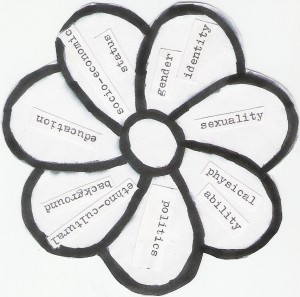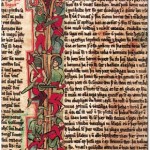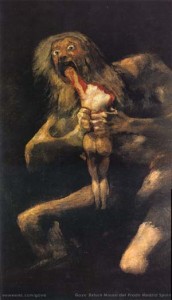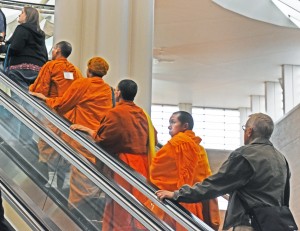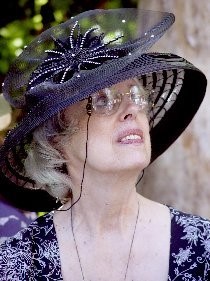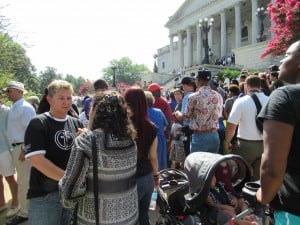There’s been a lot of angst expressed over the notion of “Wiccanate privilege.” Personally, I dislike the term. I think that stating this dissatisfaction at the outset by the using the notion of “Wiccanate privilege,” or any other kind of privilege, sets up an oppositional stance when perhaps none was intended. Or if it was intended to be derogatory or critical, I feel disappointed, even hurt.
I’ve read most, but surely not all, of the discussions of this topic in the Pagan blogosphere. Between what I’ve read and attending the “Wiccanate privilege” discussion at PantheaCon, I feel reasonably well informed.
I’ve participated in interfaith activities for several years now. I publish reports of most of these activities on my Broomstick Chronicles blog, the CoG interfaith blog, and Wild Garden at Patheos. I’ve been active member of Marin Interfaith Council where I live. Most regular attendees at MIC events know me. For some years I worked more specifically on MIC’s Justice Advocacy Team. I’ve learned a lot about situations in my county: housing for the homeless; teen suicide; substance abuse; affordable housing; water and open space issues; increases – they’re nearly always increases – in the number of people relying upon food giveaways to feed their families rather than as a supplement; and many other local problems.
I’ve also participated in other, sometimes broader interfaith efforts: United Religions Initiative; Interfaith Council of Contra Costa County; MountainTop; People of the Earth; Auburn Theological Seminary’s Center for Multifaith Education are some. In addition, I’ve participated in co-created interfaith rituals (homeless memorials; celebrating light in winter; reaffirming peace efforts on the 10th anniversary of 9/11, re-integrating returning veterans, for example). I provide this sample of my involvement so readers know I’m speaking from personal experience within the interfaith movement.
At most events everyone is asked to introduce herself[1]. When I first began this work, I used the name “Macha” and the term “Witch,” because that is who I am and because the organization I represent is the Covenant of the Goddess, a witchen organization. (I’m not getting into the Wicca/Witchcraft terminology discussion here.) Before long, I began to introduce myself as a Pagan, because I am a Pagan.
No surprise, others asked me about what Witches do and what we believe. One of my Roman Catholic friends in the JAT once asked me, very hesitantly, “You don’t worship Satan, do you?” I said no, and spoke a bit about horned and antlered gods and their having been conflated with the Christian concept of the devil.
When I speak of being a Pagan, I make a point to mention that Witches (or Wiccans, for those for whom the term is more comfortable) are not the only kinds of Pagans out there. I explain that we are the more visible and the more populous, so that’s what the public sees. That is why the uninformed (both the general public and religious leadership) may be unaware of the diversity of spiritual expressions found in contemporary American Paganism.
I explain that Paganism is an umbrella term for many contemporary, generally polytheistic, sometimes ethnic-based non-Abrahamic forms of religious expression. I say that the term embraces Druids, Asatru, Kemetics, reconstructed religions, et al., and that some of them considered themselves to be Pagans while others chose not to identify with that label (thinking of Heathenry in particular, since some Heathens shun the association.)
I make no claim to be able to speak knowledgeably about minority Pagan religions. I say nothing beyond the most basic description. For instance, that Kemeticism is a reconstruction of the religion(s) of ancient Egyptian. Further, I offer to find them resources, and then, if they’re really interested, to try to find a real life human practitioner with whom to put them in touch.
I make these points in my conversations with interfaith colleagues because I don’t want them to see us Pagans as being monolithic. In my view, our diversity and our questioning and reevaluating, are among our greatest assets. I believe we are richer and healthier when we share our perspectives. This is true for me in terms of interfaith (or multifaith or interreligious) engagement as well as within the Pagan spectrum.
For those of us who find these explorations of who we are, what our sources are, where we find inspiration, what our ancestors were up to endlessly fascinating, great! But for most of the population, at least that part I’m exposed to, this kind of talk just makes their eyes glaze over.
Unless they’re theologians (few are) or evangelicals (again, few are inclined to work beyond their own sects), they don’t want to know all that. The people who participate in interfaith activities are those who already can see that there are lots of different ways of experiencing and expressing the sacred beyond their own. They see that we (or at least I) share common concerns about society and the environment. We share life-affirming values.
I invite non-witchen Pagans to join us. That way you can be assured of the accuracy of any assumptions about who you are and what you do. If that’s not feasible, then I ask you to trust me to speak on your behalf in a way that is respectful and not misleading.
[1] I’m using feminine pronouns herein because I’m speaking from my own experience as a double X-carrying person of the female persuasion.

